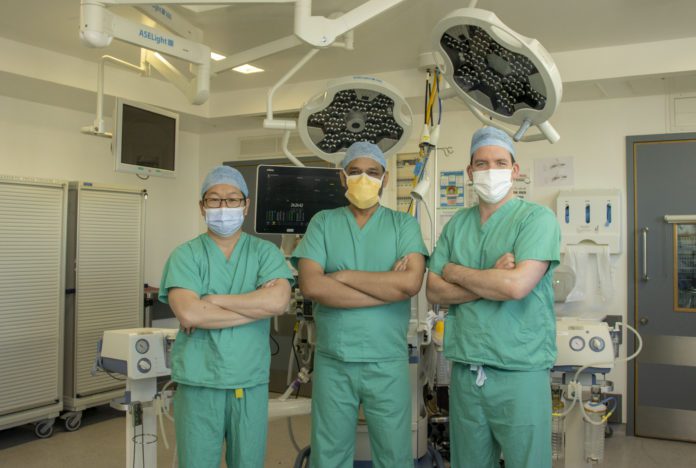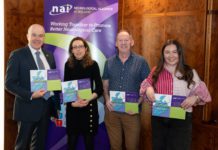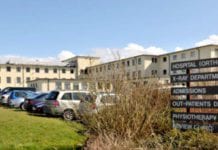
University Hospital Galway has become the first hospital in the country to introduce a new minimally invasive surgery for coronary artery bypass grafting.
The new procedure reduces significantly the risk of complications and infection for the patient.
It was carried out for the first time in Ireland by Dr Sadiq Siddiqui as part of the minimal access surgery programme at UHG.
Dr Siddiqui is an integral member of the surgical team led by Consultant Cardiothoracic Surgeons; Mr Fabio Bartolozzi, Mr Ronan Kelly and Mr Alan Soo.
Traditionally in coronary artery bypass grafting operations, a number of arteries and veins are removed from their natural position and used as conduits to bring blood to the narrow or blocked coronary arteries on the surface of a patient’s heart.
The standard surgery leaves large scars on the patient’s legs and forearms that are often slow to heal and can be disfiguring.
This new endoscopic approach leaves two tiny scars on the forearm in place of a foot long scar along the whole arm. These heal quicker and with less pain.
“The radial artery from the forearm has been shown to be a longer lasting and superior vessel to use in Coronary Artery Surgery operations particularly in younger patients,” said Dr Siddiqui.
After performing over 400 endoscopic saphenous vein harvests (EVH) in Galway as part of coronary artery bypass operations, Dr Siddiqui travelled to the Royal Brompton National Heart Hospital in London to further his training in endoscopic surgery.
There he trained in this new technique to also harvest the radial artery from the left forearm.
“We are very grateful to the Royal Brompton Hospital for the assistance and expertise,” he added.
Prof Pat Nash, Chief Clinical Director with the Saolta University Hospital Group said: “The Endoscopic Radial Artery (ERAH) programme will further advance the burgeoning minimally invasive cardiac surgery programme in Galway and improve the care of patient’s undergoing coronary artery surgery in Galway by reducing their risk of complications and infections.”












